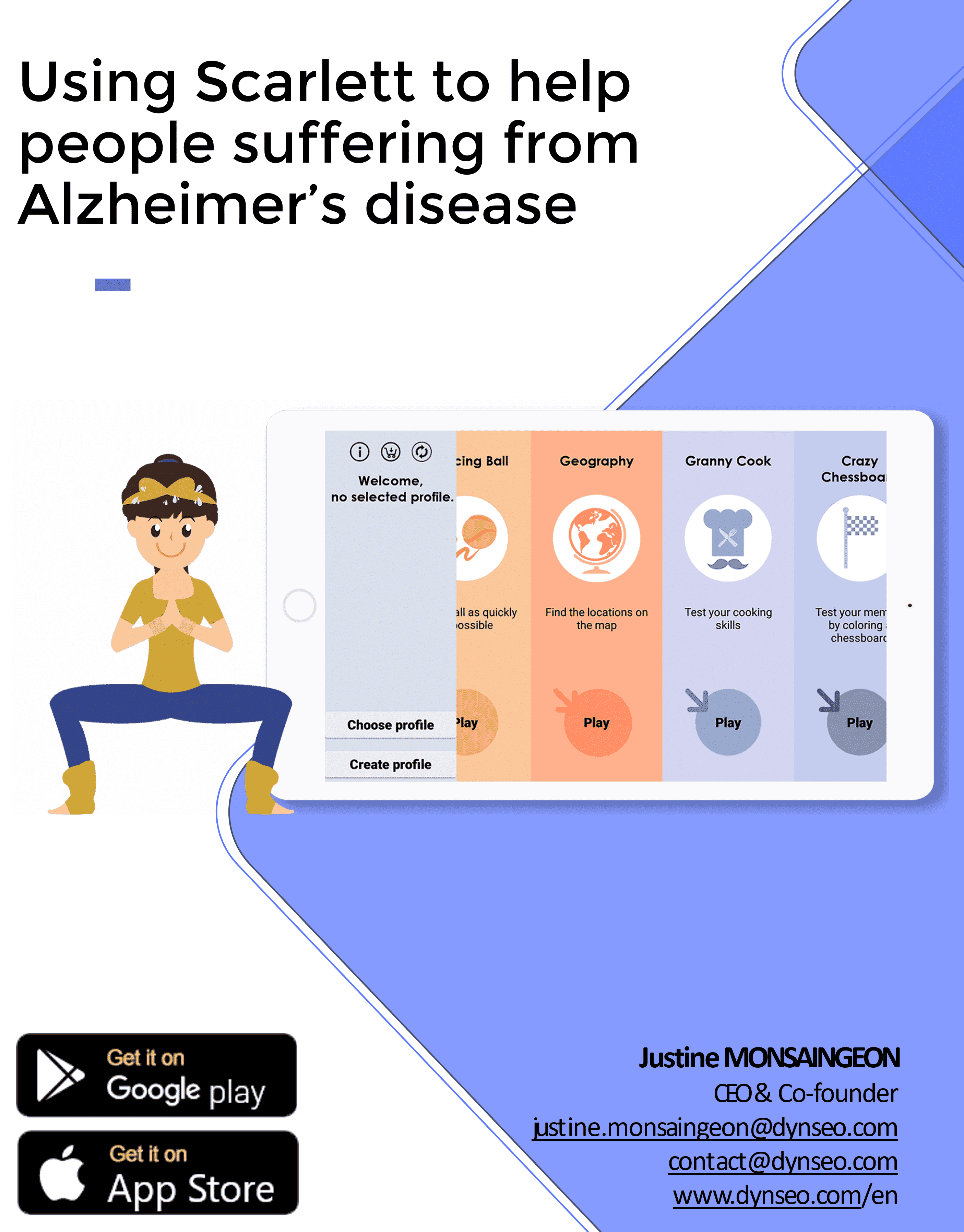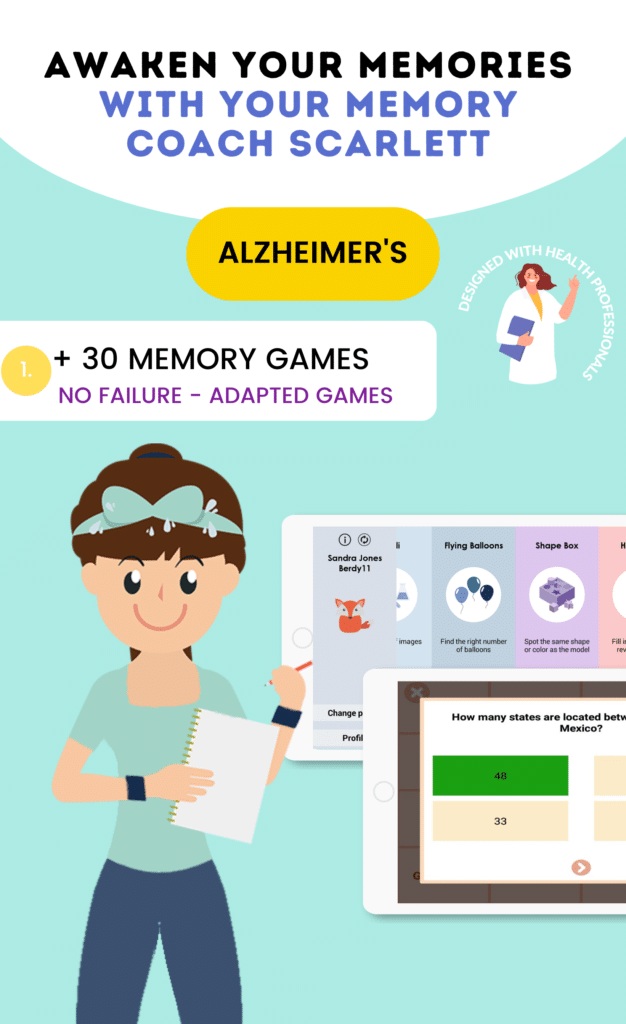How to communicate with someone suffering from Alzheimer’s’s?

Communicating with elderly people suffering from Alzheimer’s’s is not always easy! Indeed, caregivers must avoid using techniques and attitudes which are likely to disorient the elderly people.
That is why it is necessary to be clear and precise when talking to someone with Alzheimer’s’s. Thus, you will have to develop many qualities that you will learn step by step (patience, open-mind, warm).
Here are several tips that will help you better communicate with people suffering from Alzheimer’s’s.
Through this article, Jeannette will share her experience with you and will give relevant advice which will help you improving your communication skills with people suffering from Alzheimer’s’s.
However, everyone will react differently. Therefore, the following list is not exhaustive. You will need to remain open-minded and flexible.
Here are a few advice to help someone with Alzheimer’s’s.
- Call the elderly people by their name, establish eye and physical contact with them .
- Regularly remind them who you are and what do you do.
- Keep calm and talk slowly. Use short sentences and do not shout!
- Avoid too long and complicated sentences.
- Ask short and simple questions: Example: Yes/No questions.
- You should never tell them things they would not like to hear.
- However, you should regularly talk to them and avoid secrets.

All this advice will be useful to improve your communication skills when talking to elderly people with Alzheimer’s’s. Elderly people will gain self-confidence and they will easily trust you.
However, Jeanette can propose interesting features! You will discover new easy and powerful tools allowing a regular and adapted cognitive stimulation.
Therefore, she looked for more information about DYNSEO’s solution to help people with Alzheimer’s’s: SCARLETT.
Our solution to prevent Alzheimer’s’s: great memory games for adults
Our SCARLETT program is a memory games program adapted to elderly people suffering from cognitive disorders. It contains many games for the brain.
Indeed, it is important for people suffering Alzheimer’s’s to regularly train their brain.
Our SCARLETT program contains fifteen brain games culturally adapted. Our brain exercises have been designed with health professionals and elderly people to propose adapted memory games for adults.
Elderly people are never put in default and they can take their time to answer the questions.
Our brain games are used by health professionals and individuals.

Don’t Forget!
An elderly person suffering from Alzheimer’s’s is not stupid. People with Alzheimer’s’s are intelligent but are unfortunately suffering from cognitive disorders.
The Alzheimer’s’s disease usually changes people’s behavior. You should adapt yourself to their mood and use an adapted vocabulary. Don’t hesitate talking to them, asking short and simple questions (Use yes/no questions).
Besides, look the elderly people in the eyes when you talk to them. This will make them confident. Don’t forget that the physical contact is also important.
Golden rule: Caring after someone with Alzheimer’s’s is not easy! If you are having trouble, don’t hesitate to contact family members or health professionals to benefit from adapted and relevant advice.
Jeanette hopes that all this advice will be useful! She will come back to you soon with new relevant advice! Take care!

Understanding the Stages of Alzheimer’s’s Disease
Alzheimer’s’s disease progresses through several stages, each with its own challenges and communication needs. Understanding these stages can help caregivers tailor their approach effectively.
- Early Stage: Individuals may still be able to engage in conversations but may struggle with finding the right words. Use simple language and be patient.
- Middle Stage: Memory loss becomes more pronounced, and individuals may require more assistance. Use visual aids and reminders to facilitate communication.
- Late Stage: Communication may become very limited. Focus on non-verbal cues and emotional connection, such as holding hands or using soothing tones.
Incorporating Activities to Enhance Communication
Engaging in activities can significantly improve communication with individuals suffering from Alzheimer’s’s. Here are some activities that can help:
- Memory Games: Simple memory games can stimulate cognitive function and provide opportunities for interaction.
- Art and Craft: Creative activities allow for self-expression and can be a non-verbal way to communicate feelings.
- Music Therapy: Listening to familiar music can evoke memories and emotions, making it easier to connect.
- Storytelling: Encourage them to share stories from their past, which can help in recalling memories and spark conversations.
The Role of Caregivers in Supporting Communication
Caregivers play a crucial role in facilitating communication with individuals suffering from Alzheimer’s’s. Here are some strategies caregivers can adopt:
- Active Listening: Show genuine interest in what they are saying, even if it may not make complete sense.
- Positive Reinforcement: Encourage and reinforce their attempts to communicate, regardless of clarity.
- Creating a Comfortable Environment: Minimize distractions and create a calm atmosphere to facilitate better communication.
- Educating Others: Inform family members and friends about effective communication strategies to ensure consistency in interactions.
Utilizing Technology to Aid Communication
Technology can play a significant role in enhancing communication for individuals with Alzheimer’s’s. Here are some tools that can be beneficial:
- Communication Apps: There are various apps designed specifically to help individuals with cognitive impairments communicate more effectively.
- Digital Reminders: Use devices to set reminders for daily activities or important information, helping to reduce confusion.
- Video Calls: Regular video calls with family can help maintain connections and provide emotional support.
- Interactive Games: Engaging brain games on tablets or computers can stimulate cognitive functions while providing entertainment.




